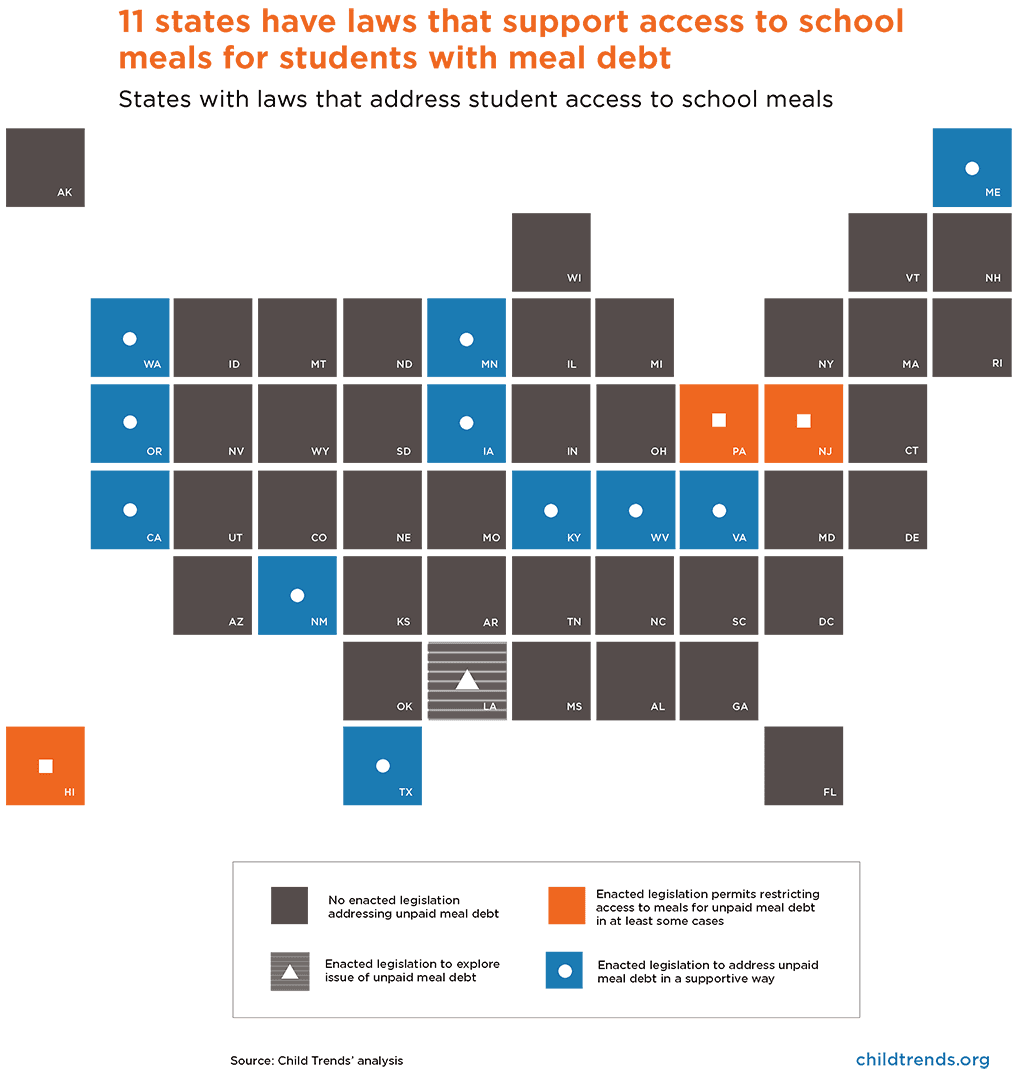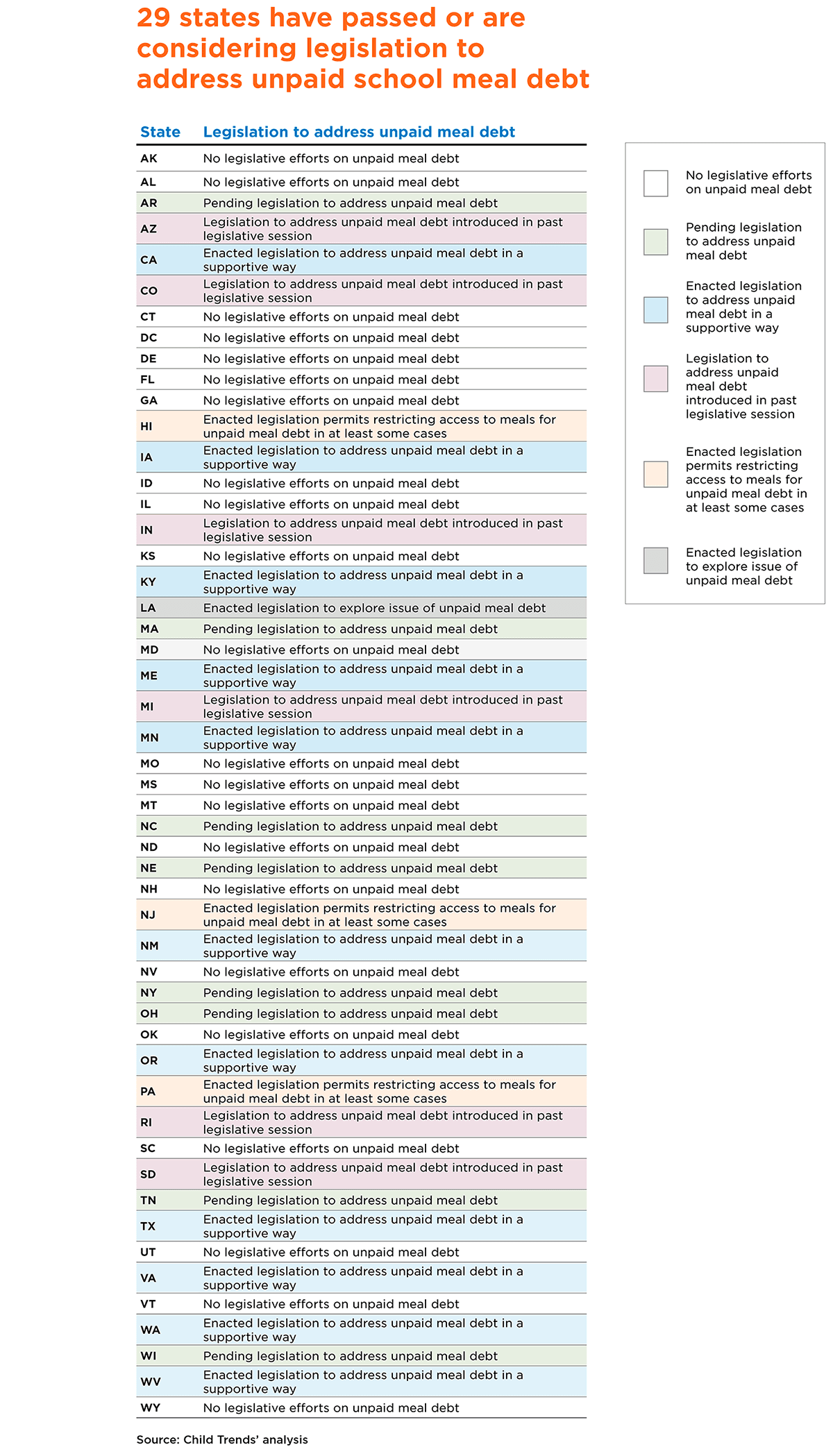11 states have laws that support access to school meals for students with meal debt
The title of this blog has been updated for clarity.
Many schools struggle to determine what actions to take when students cannot pay for school meals. In a previous blog, we highlighted how some schools’ efforts to deny students meals or to publicly shame them (i.e., “lunch shaming”) run counter to broader initiatives to support students’ physical, social, and emotional well-being.
As of September 2019, a total of 29 states have either passed, or considered passage of, new laws to address how schools handle students with unpaid meal debt. Fifteen states have laws that address student access to school meals; 11 of these states have laws that explicitly support student access. For example, Maine requires schools to provide meals for all students regardless of their ability to pay and restricts schools from throwing away meals, requiring chores, or otherwise stigmatizing students with unpaid meal debt.

Of the remaining four states, one, Louisiana, has enacted legislation that does not directly take action on unpaid meals, but instead establishes a committee to create guidelines for ensuring student access to meals.
Three states (Hawaii, New Jersey, and Pennsylvania) have laws that allow schools to restrict students’ access to meals under certain parameters; in Hawaii’s case, schools are prohibited from doing so for the first 21 days of school and until seven days after a second attempt at notifying parents of the debt, but are permitted to restrict meals beyond these parameters. Pennsylvania, while first restricting the use of lunch shaming practices, later enacted legislation that reinstated the option for schools to provide alternative meals to students owing more than $50.
A similar bill is pending in Washington to revise the current law—which is similar to Maine’s—to allow schools to deny meals to students in grades 9-12.
The table below shows how states have addressed school lunch shaming in enacted, pending, and previously considered legislation, updating our map from this 2018 blog. As school meal debt remains a topic of concern for policymakers and educators, as well as students and parents, we’ll continue to track movement in this area.

To collect these data, we included state laws coded as part of the National Association of State Boards of Education’s State Policy Database as of September 2017 and compared them with state legislation introduced since then according to the PoliticoPro State Legislative Compass. We considered bills introduced last year as still pending in states that allow bills to be carried over between legislative sessions.
© Copyright 2024 ChildTrendsPrivacy Statement
Newsletter SignupLinkedInThreadsYouTube